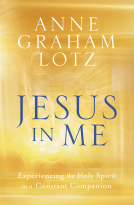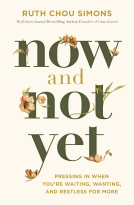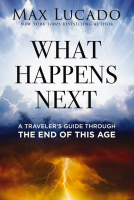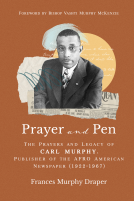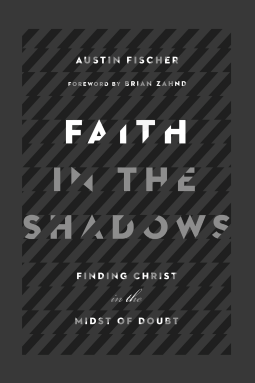
Faith in the Shadows
Finding Christ in the Midst of Doubt
by Austin Fischer
This title was previously available on NetGalley and is now archived.
Send NetGalley books directly to your Kindle or Kindle app
1
To read on a Kindle or Kindle app, please add kindle@netgalley.com as an approved email address to receive files in your Amazon account. Click here for step-by-step instructions.
2
Also find your Kindle email address within your Amazon account, and enter it here.
Pub Date Sep 11 2018 | Archive Date Oct 16 2018
Talking about this book? Use #FaithInTheShadows #NetGalley. More hashtag tips!
Description
"People don't abandon faith because they have doubts. People abandon faith because they think they're not allowed to have doubts."Too often, our honest questions about faith are met with cold confidence and easy answers. But false certitude doesn't result in strong faith—it results in disillusionment, or worse, in a dogmatic, overweening faith unable to see itself or its object clearly.Even as a pastor, Austin Fischer has experienced the shadows of doubt and disillusionment. In Faith in the Shadows, he leans into perennial questions about Christianity with raw and fearless integrity. He addresses contemporary science, the problem of evil, hell, God's silence, and other issues, offering not only fresh treatments of these questions but also a fresh paradigm for thinking about doubt itself. Doubt, Fischer contends, is no reason to leave the faith. Instead, it's an invitation to a more honest faith—a faith that's not in control, but that trusts more fully in its Lord.
Advance Praise
"With Faith in the Shadows, Austin Fischer steps out of the shadows and into the limelight of leading contemporary, American Christian pastor-theologians. This book is a must read for every pastor who struggles with issues of Christian faith in an increasingly doubt-filled and confused world. The line between hardcore fundamentalism and insipid theological liberalism is a fine one these days; most people fall to one side or the other. Fischer helpfully points out the path between and beyond them."
-Roger E. Olson, Foy Valentine Professor of Christian Theology and Ethics, George W. Truett Theological Seminary, Baylor University
Available Editions
| EDITION | Other Format |
| ISBN | 9780830845439 |
| PRICE | $19.99 (USD) |
Links
Featured Reviews
 Linda J, Reviewer
Linda J, Reviewer
This is an honest and relevant book. I don't agree with all that he shares. but realize I don't wrestle with the same issues he does. I am not a skeptic by nature and don't really understand the mind of the skeptic, but want to and do better understand it because of this book. Thank you. I think it is important to be honest about our doubts.
I received this book free from the publisher for the purpose of an honest review.
 Nancy L, Reviewer
Nancy L, Reviewer
Faith in the Shadows reaches out to answer many questions about Christianity. So often people do not get their answers to their questions. The author says it is good to have questions. He addresses the problem of evil, hell, science and how God can fit with the questions in these areas. He encourages people to look for the answers and seek God in the midst of the answers. He tells believers to not stop believing when they have questions and God can meet us where are questions are. So often people stop following the Lord when they have doubts. The Lord can meet us where we have doubts and cares about our doubts. He is faithful. When we have the answers to our doubts we have a more secure and firm faith. This book "Faith in the Shadows" was given to me by the publisher and netgalley for review purposes only . I appreciate this opportunity to read and review this book.
 Michelle K, Reviewer
Michelle K, Reviewer
Faith in the Shadows
Finding Christ in the Midst of Doubt
by Austin Fischer
InterVarsity Press
Christian , Religion & Spirituality
Pub Date 11 Sep 2018
I am reviewing a copy of Faith in the Shadows through InterVarsity Press and Netgalley:
In this book Austin Fischer reminds us that people don't abandon Faith because they have doubts but they abandon faith because they fear they are not allowed to have doubts.
To often when we ask honest questions regarding our faith we are met with cold and easy answers. This false certitude often leads to disillusionment.
Faith in the shadows remind us that it's okay to ask questions!
Five out of five stars!
Happy Reading!
 Alycia C, Educator
Alycia C, Educator
He helps you explore your inner faith questions or doubts ... this book is just AMAZING I will read this more than once and I want the hard copy so I can write in it !
At just over 200 pages, Austin Fischer packs a whole lot of topics, ideas, and theology into this little book: theodicy (the problem of pain/evil), to doubt vs. certainty, the silence of God, why fundamentalism and biblical literalism doesn't work, science vs. faith and why that doesn't have to be the case (yes, including how evolution doesn't destroy Christianity); and even belief in some kind of hell vs. some kind of christian universalism.
Table of Contents
Foreword by Brian Zahnd
1. Graffiti: An Invitation to a Rebellion
2. Ants on a Rollercoaster: Losing a Certainty Seeking Faith
3. How to Survive a Hurricane: Doubting with Job
4. Beautiful, Terrible World: The Burden of Reality
5. Four Letter Word: (Kind of) Making Sense of Evil
6. Silence: Believing When God Isn’t Speaking
7. Death by Fundamentalism: Talking to Fish About Water
8. Science: God Doesn’t Exist
9 Stuff: Our New Religion
10. Hell: Hitler Gets Five Minutes in Heaven
11. Faith, Doubt, and Love: The Real Remedy
12. Christ or the Truth?: A Case for Faith in the Worst Case
13. Walking on Water: The Proof Is in the Living
I agree with Fischer when he says he doesn't see hidden joy or design behind the tragedies of children dying of cancer or people dying in car accidents. Like him, "I see nonsense. I don’t feel divinely comforted; I feel rage."
Fischer writes, "I tried to pray and preach myself out of the dark, but the harder I tried, the bleaker the situation became. And then finally, I stopped trying—not because God told me to but because I was so exhausted I had no choice. I stopped trying to force the light and pretend the dark wasn’t really that dark. I let myself envision the blasphemous and felt the chill of a world without God" (Loc 578).
It really struck me when Fischer pointed out that "it is often those with deep faith, firmly grounded in the love of God, who find their faith languishing in the shadows when faced with creation’s ceaseless pain: “The more a person believes, the more deeply he experiences pain over the suffering of the world” (Loc 592). Furthermore, he says, "A crisis of faith in the face of evil can be the truest expression of faith, because what we interpret as a loss of faith are often the growing pains of learning to live with a heart three sizes larger beating inside our chest. So if evil (almost) makes us lose our faith, it might be because our faith is growing strong, not growing weak" (Loc 597).
I love where Fischer talks about how the Bible does not contain one theology, but multiple theologies, that uses a diverse range of voices which "don't always harmonize perfectly".
"when we claim the Bible clearly teaches something that has been rigorously debated by the best and most faithful minds for thousands of years, we could at least have the decency to blush. A couple thousand years of mercurial biblical interpretation suggest we’re not being very honest with ourselves." (Loc 770-780)
I appreciated his reminder that Mother Teresa also struggled with spiritual darkness and depression, as revealed in her private letters.
<u>Chapter 7 - Death by Fundamentalism</u>
I really loved this chapter!
"The spirit of fundamentalism is perhaps best described as a rigid mental attitude that seeks control by pursuing certainty [...] Fundamentalism mistakenly assumes it looks on the world with “a view from nowhere,” objectively staring down at reality from above."
[Read <i>The Sin of Certainty</i> by Peter Enns for more in depth treatment of this problem.]
Fischer then mentions Mark Noll's book, <i>The Scandal of the Evangelical Mind,</i> which I still need to read. Still talking about Noll's book, Fischer says, "In a truly novel development in the history of Christian theology, many Christians began trying to read all the Bible as literally as possible, thinking that by doing so and using the objective, fact-finding method of modern science, they could work to a sure, certain faith—the whole truth and nothing but it. Reading the Bible “literally” and “scientifically,” Christians could discover truth every bit as objective as the truths being discovered in the natural sciences. And so a house of cards was built on a foundation of sand."
I remember Greg Boyd talking about that "house of cards" kind of faith also in his book, <i>Benefit of the Doubt.</i>
I really loved this: "After a sermon in which I mentioned the two creation stories of Genesis cannot both be read literally, I was confronted by a wellmeaning parishioner who informed me that he had been informed the Bible was the literal word of God and any belief otherwise was a slippery slope toward perdition. He was a very kind man and had only recently become a Christian, so I understood his concerns and asked him if he had read Psalms. He had. Then I asked if he thought Psalms was the word of God. He did. Then I asked him if he read all of the psalms literally—did he believe mountains pulled up their britches and skipped along like rams when God came walking by (Psalm 114)? He assured me he did not because that would be silly. “So,” I asked, “you think something can be true and the word of God and yet not literal?” A smile crept across his face and he responded, “Well—I guess I do.” And intuitively, we all do. Like many others, I read The Chronicles of Narnia when I was a child and it never occurred to me that Narnia was a real place and Aslan a real lion. I knew they were fictional. And yet I also knew those fictional tales of Narnia told the truth—the truth about good and evil and courage and sacrifice. In fact, I knew those fictional tales told deeper and truer truth than the “just the facts” information collected in my textbooks. <b>Something does not have to be literal in order to be true.</b> In fact, the truest things probably cannot be spoken literally." (Loc 1052)
Fischer takes to referring to this biblical literalism as "biblical flatland", which I love. (This is a reference he explains earlier about <i>Flatland: A Romance of Many Dimensions</i> by Edwin Abbott Abbott. But the idea is that strict, biblical literalism flattens out the text and actually undermines the beauty and layers of meanings available to us.
<u>Chapter 8: Science - God Doesn't Exist</u>
Here Fischer talks about how there is no reason Christians can't accept the scientific consensus on evolution:
"Scientists are not split over evolution. Every reputable survey you come across puts scientific support for evolution in the range of 90-99 percent, with that number tending toward the latter among scientists who actually specialize in fields that would make them experts on the issue. This is a remarkable consensus. Yes, the theory itself continues to evolve and mature, but the basic premise that terrestrial life has evolved over time from common ancestry has been confirmed over and over. And God need be in competition with evolution no more than God need be in competition with sperm or gravity." (Loc 1180)
So how does evolution supposedly conflict with Christianity? The big one has to do with coming up against that biblical literalism that was just covered in chapter 7.
"If we read the first two chapters of Genesis as a literal description of how God made the world, then evolution and Christianity are in conflict. But we should not read Genesis 1 and 2 literally! In fact, a rigidly literal reading of Genesis 1–2, resulting in the belief that God created the world ten thousand years ago (known as young-earth creationism), has only gained traction within the last hundred years. It is an overwhelmingly minority position in orthodox Christian theology, a novelty on the theological scene. As Noll states, “Despite widespread impressions to the contrary, [young-earth] creationism was not a traditional belief of nineteenth-century conservative Protestants or even of early twentieth-century fundamentalists.” This needs to be said as clearly, consistently, and charitably as possible: not only is rigid biblical literalism and young-earth creationism not essential, but it is fundamentally biblically, theologically, philosophically, historically, and scientifically mistaken. It may come from a sincere place, but it can be very dangerous. It produces bad Bible reading, bad theology, and very bad science." (Loc 1238)
[In seminary I wrote a whole <a href="http://www.jenniferneyhart.com/2016/05/what-is-genre-of-genesis-1-2-part-1.html">paper on how we should read and interpret Genesis 1-2 based on the genre of the text. You can read that here if you wish.</a>
TL:DR - Just go read the book for yourself. It is well worth your time!

